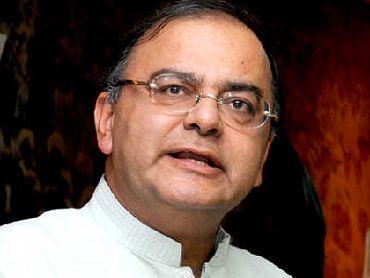 Sending out a clear signal that the NDA government is moving fast on economic reforms, the long-pending Bill hiking the foreign investment cap in the insurance sector to 49 per cent is set for clearance by the Union Cabinet on Thursday after which it will be tabled in Parliament next week.
Sending out a clear signal that the NDA government is moving fast on economic reforms, the long-pending Bill hiking the foreign investment cap in the insurance sector to 49 per cent is set for clearance by the Union Cabinet on Thursday after which it will be tabled in Parliament next week.
Ironically, the Bharatiya Janata Party had opposed the same Bill when the United Progressive Alliance (UPA) government had sought its passage in Parliament.
However, the BJP-led government did a quick U-turn on this issue after coming to power.
Announcing the FDI hike when he presented his maiden budget earlier this month, finance minister Arun Jaitley told Parliament, “The Insurance sector is investment-starved. Several segments of the Insurance sector need an expansion.
The composite cap in the Insurance sector is proposed to be increased up to 49 per cent from the current level of 26 per cent, with full Indian management and control, through the FIPB route."
Following up on this budget proposal, Jaitley is working overtime to get Cabinet clearance for this Bill so that he can get it cleared in the ongoing Parliament session.
The finance minister is of the view that opening of the insurance sector will bring in at least five to seven billion dollars into the Indian economy.
Since the cap on the FDI in pension and insurance is linked, an increase in the foreign investment cap in insurance to 49 per cent, the cap in pension will automatically go up to 49 per cent.
Consequently, the government will not be required to approach Parliament to hike FDI in pension.
BJP sources told rediff.com that the reason for pushing through the insurance Bill was two-fold: one was to provide much-needed relief to the insurance sector and the other was to send out a message internationally that economic reforms are back on track.
The ruling alliance hopes India will again emerge as an attractive destination for foreign investors who been discouraged by the slow growth rate and the stalled reforms witnessed during the UPA regime.
The BJP believes this move will also push international credit rating agencies to upgrade India.
Having come to power on the promise that it will improve the country’s economic climate, push up the growth rate and generate jobs, the Modi-led BJP government is under pressure to deliver and deliver fast on these promises.
“ We are not bringing the insurance Bill only to send out a political signal… the reasons are purely economic.
This legislation will bring in foreign investments and pump up the economy,” a senior BJP minister told rediff.com.
BJP ministers also sought to explain their opposition to the Bill during the UPA regime, saying the key economic legislation party actually fell by the wayside because of the “ poor interpersonal relations” between former finance minister P.Chidambaram and BJP’s former finance minister Yashwant Sinha.
Sinha, who was also heading the parliamentary standing committee on finance, was spearheading the opposition to the UPA government’s move to hike foreign direct investment in the insurance sector from 26 to 49 per cent. In fact, this proposal has been pending in the Rajya Sabha since 2008 but was shot down by the opposition.
Although the passage of the Bill can be secured with a simple majority, the UPA government was hamstrung as it did not enjoy a majority in the Upper House.
It could not have passed the Bill without the BJP’s support as most other political parties, including the Left parties, Trinamool Congress and the Samajwadi Party, were also opposed to it.
As it happens, the roles have now been reversed. This time round, the BJP-led NDA government is seeking Congress support for the passage of the insurance Bill it had originally moved. In another twist, the Congress-led UPA is in a dominant position as it now enjoys a majority in the Rajya Sabha.
While the Trinamool Congress and Left parties are unlikely to change their stand on this Bill, Congress support is, therefore, crucial.
Having been the prime movers of this legislation, it will be difficult for the Congress to veto it because it is now seated in the opposition.
While the Congress will firm up its strategy once the ruling alliance tables the Bill, initial comments by its leaders have been encouraging.
“We, unlike NDA, do not change stance when we are in government and (when we are in opposition). We will stand by it ... provided every clause in the Bill is for the benefit of the common man,” Congress chief whip in Lok Sabha Jyotiraditya Scindia had told media persons recently.











 © 2025
© 2025